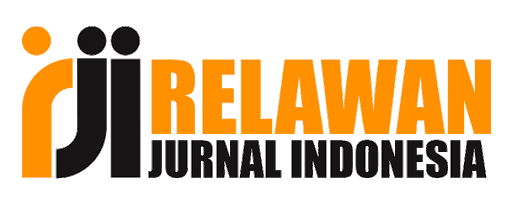The Role of Women as Educators
DOI:
https://doi.org/10.51311/nuris.v7i2.190Keywords:
Women, EducatorsAbstract
In the Al-Qur’an and Hadith there are not prohibition for women in seeking knowledge. On the contrary, Islam requires or obliges women to seek knowledge as well as men. Science is like light that will illuminate women's footsteps into the future. A woman of knowledge must be elevated. Conversely, women who are ignorant and lack knowledge will only be considered as weak creatures who can be empowered, not empowered. Such is the importance of parent's knowledge, especially the knowledge of a woman (mother) who is able to make a child's soul character and character, good or bad, so that the obligation for children's education is directed at both parents when the child is still in the womb until he reaches adulthood. For this reason it is important for a woman (mother) have to be smart, so that the character of the mother descends on her children. As a woman (mother) who is assigned to be the first teacher for her children does not necessarily teach only what she knows, mothers who are able to give birth an intelligent generation for the homeland and nation must also have intelligence in themselves, for a woman is not wrong if have a high education in order to educate their children.
Downloads
References
Ann Elizabeth Mayer, 1995. Islam and Human Rights, Tradition and Politics, London: Pinter Publishers
Fauzie Nurdin, 2009. Perempuan Islam dan Transformasi Sosial Keagamaan, Yogyakarta: Gama Media
Hadi Dust Muhammadi, 2005. Bukan Perempuan Biasa, Jakarta : Cahaya, 2005
Hamid Laonso dan Muhammad Jamil, 2005. Hukum Islam Alternatif Solusi terhadap Masalah Fiqh Kontemporer, Jakarta: Restu Ilahi
Hussein Muhammad, 2004. Islam Agama Ramah Perempuan, Yogyakarta: LKiS
Iis Nuraeni Afgandi & Novi Hidayati Afsari, 2001. Ternyata Perempuan Bukan Makhluk Lemah, Bandung: Ruang Kata
Imam Machali, 2013. Islam Memandang Hak Asasi Pendidikan, Media pendidikan, 27 (1), 2013, h. 14-15.
Isnaniah dan M. Imamuddin, 2020. Students’ Understanding of Mathematical Concepts Using Manipulative Learning Media in Elementary Schools, Proceeding, 1st Bukittinggi International Conference on Education, IOP Conf. Series Journal of Physics: Conf. Series 1471 (2020) 010250. IOP Publishing doi: 10.1088/1742-6596/1471/1/012050, 2020. h. 1-7
Kartini Kartono, 1989. Psikologi Perempuan, Mengenal Gadis Remaja dan perempuan Dewasa, Bandung: Mandar Maju
Khofifah Indar Parawansa, 2013. Islam, NU, dan Keindonesiaan, Bandung: Nuansa Cendikia
M. Imamuddin, Andryadi dan Zulmuqim, 2020. Islamic Education In The Al-Qur'an and Sunnah (Study About the Meaning of Education and Implication for Educator). Journal Educative: Journal of Educational Studies 5 (1), 70-83, 2020
M. Imamuddin, dkk., 2019. Gender Based Perception On Understanding Mathematics Concep By Using PBL, Humanisma: Journal of Gender Studies, 3 (1), 58-74, 2019
M. Imamuddin dan Isnaniah, 2018. Kemampuan Spasial Mahasiswa Laki-laki dan Perempuan dalam Menyelesaikan Masalah Geometri, Humanisma: Journal of Gender Studies, 1 (2), 38-47, Juli-Desember 2017
Maha Azzam, 1996. Gender And The Politics of Religion In The Middle East in Mai Yamani, ed. Feminism And Islam legal and literary Perspective, New York: New York University Press
Mansour Fakih, 2005. Analisis Gender dan Transformasi Sosial, Cet. IX, Yogyakarta: Pustaka Pelajar
Margot Badran, 1995. Feminist, Islam, and Nation, Gender and The Making of Modern Egypt, New Jersey: Princeton University Press, 1995
Moenawar Chalil, 1984. Nilai Perempuan, Solo: Ramadhani
Muhammad bin Isa at-Tirmizi, 1975. Sunan at-Tirmizi, No. 113, Mesir: Mushthafa Al-Baby Al-Halaby
Muhammad Munir Mursi, 1982. al-Tarbiyyat al-Islamiyat, Ushuliha wa Thathawuriha fi al-Bilad al-Arabiyat, Kairo: ‘Alim al-Kutub
Murtadha Muthahhari, 2015. Filsafat Perempuan dalam Islam, Yogyakarta: Rausyan Fikr
Murtadla Muthahari, 1995. Hak-hak Perempuan dalam Islam, Jakarta: Lentera
Nani Suwondo, 1981. Kedudukan Perempuan Indnesia: Dalam Hukum dan Masyarakat, Jakarta: Balai Aksara
Nasaruddin Umar, 2003. Teologi Jender: Antara Mitos dan Teks Kitab Suci, Jakarta : Pustaka Cicero
Raga’ El-Nimr, 1996. Women In Islamic Law in Mai Yamani, ed. Feminism And Islam legal and literary Perspective, New York: New York University Press
Samsul Nizar dan Zainal Efendi Hasibuan, 2011. Hadis Tarbawi Membangun Kerangka Pendidikan Ideal Perspektif Rasulullah, Jakarta: Kalam Mulia
Supardin, 2013. Kajian Gender Perspektif Hadis Nabi, Kajian Gender Perspektif Hadis Nabi, AL-FIKR, Volume 48 17 Nomor 1 Tahun 2013, h. 53.
Syafiq Hasyim, 2005. Pengantar Feminisme dan Fundamentalisme Islam, Cet. I, Yogyakarta: LKiS
Trisakti Handayanirakat, 1996. Memperjuangkan Hak Asasi Perempuan, dalam Suara Perempuan, Pusat Studi Perempuan dan Kemasyarakatan, Malang: UMM
Downloads
Published
How to Cite
Issue
Section
License
NUR EL ISLAM Journal is an Open Access Journal. The authors who publish the manuscript in this journal agree to the following terms:
(1) The formal legal provisions for access to digital articles of this electronic journal are subject to the terms of the Creative Commons Attribution 4.0 International License (CC BY 4.0), which means that Nur El Islam reserves the right to save, transmit media or format, Database), maintain, and publish articles without requesting permission from the Author as long as it keeps the Author's name as the owner of Copyright.
(2) The reproduction of any part of this journal, its storage in databases and its transmission by any form or media, such as electronic, electrostatic and mechanical copies, photocopies, recordings, magnetic media, etc., will be allowed only with a written permission from Nur El Islam.








